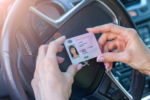Alabama Governor Kay Ivey recently expressed her strong support for legislative measures aimed at curbing gun violence and enhancing public safety in the state. Governor Ivey has publicly endorsed a proposed ban on Glock switches and cell phones in certain areas, marking a significant step in her efforts to address growing concerns over illegal firearms and the use of technology to evade law enforcement.
What Are Glock Switches?
A Glock switch is a small device that can be attached to a Glock handgun, converting it from a semi-automatic weapon into a fully automatic firearm. These switches, which are illegal to possess under federal law, have been increasingly linked to gun violence and illegal gun trafficking. While a Glock handgun itself is legal in most states, the addition of a switch effectively turns the weapon into a machine gun, enabling rapid-fire capabilities that significantly increase the weapon’s lethality.
Governor Ivey’s support for the Glock switch ban follows a growing trend of lawmakers nationwide looking to target illegal modifications to firearms. The increase in the use of such modifications has led to concerns about public safety, particularly in urban areas where gun violence has been on the rise. By supporting the ban, Governor Ivey aims to close the loopholes that allow these dangerous modifications to proliferate.
Cell Phone Ban in Certain Areas
Alongside her support for the Glock switch ban, Governor Ivey is also advocating for a cell phone ban in designated areas to prevent illegal activities such as drug trafficking, gang-related communications, and the facilitation of crimes. Proponents of the ban argue that restricting cell phone use in certain locations, such as prisons or areas with high crime rates, could help law enforcement prevent criminal coordination and trafficking.
Cell phones have become an essential tool for criminals, enabling them to communicate without detection. By banning phones in high-risk areas, authorities believe they can reduce criminal activity and create safer environments for both law enforcement and civilians. Governor Ivey’s backing of this measure is part of a broader strategy to improve public safety and reduce crime rates in Alabama.
Public Safety Concerns and Legislative Action
Governor Ivey’s endorsements come in response to rising concerns over public safety in Alabama and across the United States. Gun violence, particularly involving illegal firearms and firearm modifications, has become a key focus of local and state governments. Recent incidents of gun violence in Alabama, including those involving Glock switch-equipped firearms, have prompted lawmakers to take action to curb the spread of these dangerous weapons.
The proposed Glock switch ban would make it illegal to possess, distribute, or use Glock switches in Alabama, with violators facing severe criminal penalties. Similarly, the cell phone ban is expected to target areas where law enforcement believes that phones are being used for illicit purposes, such as in prisons or during organized crime activities.
Challenges and Controversy
While both proposals have garnered significant support from law enforcement and public safety advocates, they have also faced criticism from some civil liberties groups and legal experts. Opponents argue that the Glock switch ban could unfairly target lawful gun owners who possess Glock handguns and that the cell phone ban could infringe on personal freedoms, particularly the right to communicate.
There are also concerns that such measures could disproportionately affect certain communities, particularly those already under surveillance by law enforcement. Critics argue that additional regulations may place undue burden on individuals in these communities without necessarily reducing crime rates.
Despite these concerns, Governor Ivey remains committed to her stance on these issues, stating that her priority is the safety of Alabama’s residents. She has emphasized that these measures are necessary to combat the rising tide of violent crime and ensure that law enforcement can effectively protect citizens.
Looking Ahead: Potential Impact of the Legislation
If the proposed legislation is passed, Alabama would join several other states that have implemented stricter laws surrounding firearms and technology use in certain areas. While the laws would aim to reduce criminal activity and improve public safety, their success will depend on enforcement and public compliance.
Lawmakers will likely continue to evaluate the effectiveness of these measures over time and make adjustments as needed.
Governor Ivey’s support of the Glock switch and cell phone bans signals a commitment to addressing key public safety issues in Alabama. While the legislative process is still underway, these initiatives represent a significant step forward in the state’s efforts to combat illegal firearms and reduce crime rates.
For more information on Alabama’s approach to gun violence and public safety, visit AL.com.
Disclaimer – Our team has carefully fact-checked this article to make sure it’s accurate and free from any misinformation. We’re dedicated to keeping our content honest and reliable for our readers.








